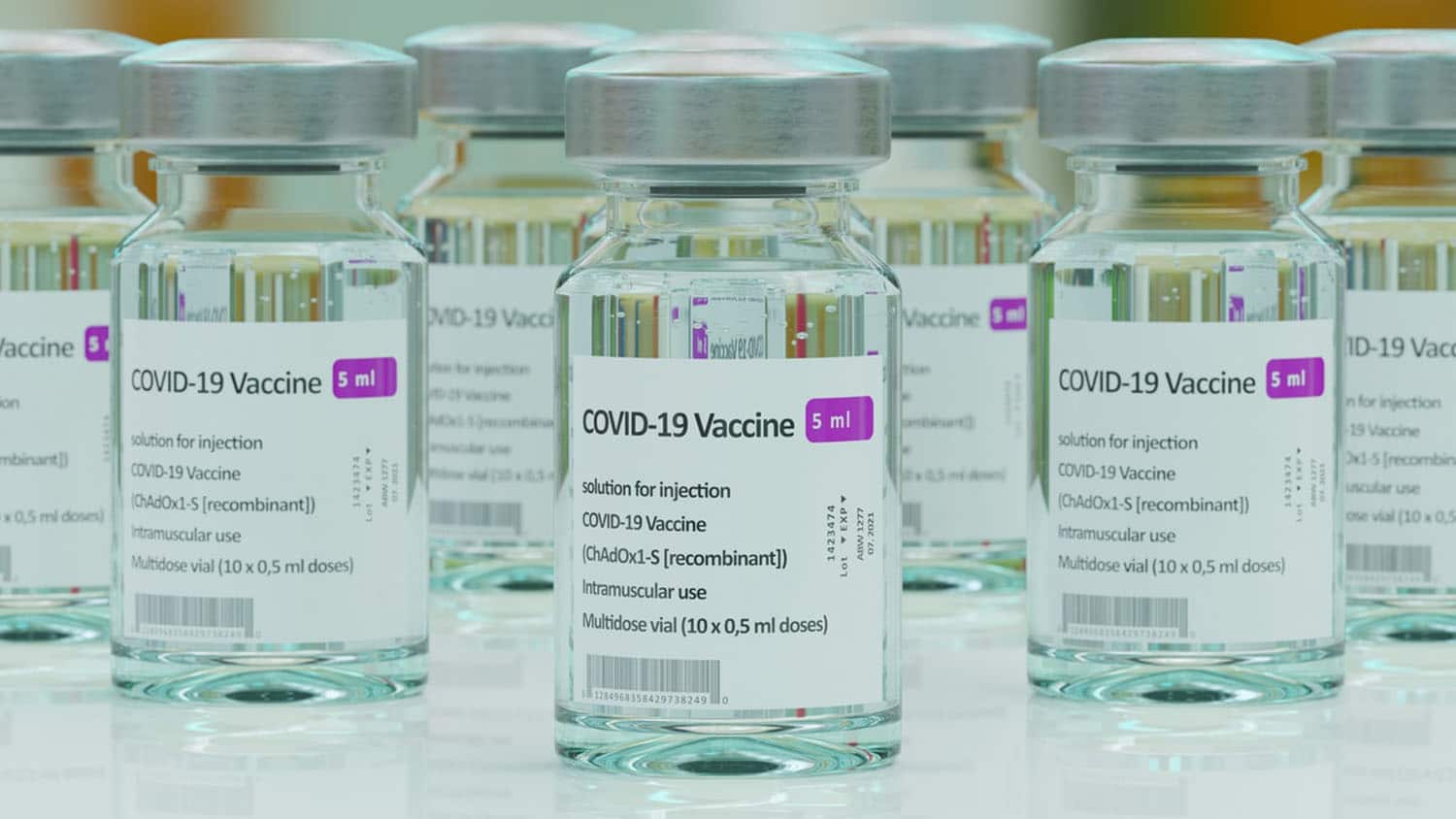Vaccine Q&A: What Is a Vaccine Booster? And Why Might I Need One?

The Biden administration announced August 18 that people who were vaccinated with mRNA vaccines (Pfizer and Moderna) against COVID-19 should consider getting vaccine boosters eight months after they received their second dose of Pfizer or Moderna. But what are booster shots? And why might they be needed?
To address those questions, we spoke with Julie Swann and Matt Koci. Swann is a systems engineer with expertise in vaccine distribution whose work focuses on making health care and supply chains more efficient, effective and equitable. Swann is the department head and A. Doug Allison Distinguished Professor of the Fitts Department of Industrial and Systems Engineering at NC State. Koci is a virologist and immunologist whose work focuses on host-microbe interactions in birds; he is a professor in NC State’s Prestage Department of Poultry Science.
This post is part of a series of Q&As in which NC State experts address questions about the vaccines on issues ranging from safety to manufacturing to distribution. (Including a second Q&A, addressing even more questions related to vaccine boosters.)
The Abstract: What is a booster?
Matt Koci: Great question. In the past I’ve described vaccines as vocational training for your immune system, as compared to on-the-job training from getting an infection. To extend that analogy a bit further, booster shots are like refresher courses. You took the class and passed, but you haven’t had to use that skill on the job yet. Now that it’s been some time since you graduated, you haven’t forgotten the material completely, but you know if you were to retake the exam you wouldn’t do as well as you did before. Then your boss tells you, “I know we hired you because you took those courses and we haven’t given you the chance to show what you can do. Don’t worry, in the next few weeks I’m sure you’ll get the chance to shine.” You’d likely go home and start reviewing your old notes.
That’s the job of a booster shot. You got the vaccine. It taught your immune system how to respond to the disease so it would be ready to handle it as soon as it showed up. However, with masks and social distancing, your immune system hasn’t needed to flex those new skills. Now that cases are as high as they’ve been at any point during the pandemic, and people aren’t hunkered down in their homes like they were, the chances that you need your immune system to be at the top of its game are as high as ever. So, booster shots help make sure you’re ready.
One thing to point out: the booster shots the CDC has recommended people start getting is just another dose of the vaccine, against the same version of COVID. It is not specific to the delta variant. Delta is different enough from the original virus that the vaccine doesn’t work as well as it did against the original COVID virus. However, the vaccines still work well enough that there isn’t a need for a new, variant-specific vaccine – at least not yet. I wanted to mention that, because I know some people, and some physicians, have been confused when trying to find a place to get their booster, thinking it was a different vaccine or was being given at different locations. Any place giving out vaccine will do.
Julie Swann: I love all of that information! So booster shots are reminding the immune system how to perform, making it go faster. For both some vaccines and medical treatments, performance is enhanced by having multiple doses over time rather than one big dose all at once. Vaccines given to children include multiple doses of vaccine for Hepatitis B, pertussis (whooping cough), polio, meningitis, and others. And adults receive boosters for some immunizations as well.
TA: Why are boosters being considered for people who received the Moderna and Pfizer vaccines?
Swann: Well, let’s be a little bit careful. On August 18 there was an announcement that the government is anticipating that we need boosters based on growing evidence, and they announced a draft timeline for distribution. That initial announcement gives state and local health jurisdictions, along with health providers, time to prepare to distribute boosters. All of it is subject to the FDA giving Emergency Use Approval for boosters to the general public. We are also awaiting the formal consideration by the Advisory Committee on Immunization Practices (ACIP) within the CDC. That group will consider booster shots formally and make a recommendation to the CDC. Now back to the question about boosters for people who received Moderna and Pfizer vaccine.
Koci: The short answer is, around the world we’ve seen the levels of antibodies start to drop after about six months after your second shot. This decrease in antibodies isn’t a lot. Antibody levels are actually high enough to fully protect you from the original version of COVID. It’s not that the vaccine isn’t as good as you were told, it’s that we’re fighting a different variant of the virus now.
The delta variant is just different enough from the original COVID virus that the drop off in antibody level after six months seems to make a difference in how many people are getting mild-to-moderate infections with the delta variant. The idea behind getting the booster now is that it will help get the immune system back up to its peak performance, which will hopefully help reduce the number of breakthrough infections, and/or ensure those infections are as mild as possible.
I should also point out that boosters are especially important for those who have immunocompromised conditions, and therefore may not have gotten the full benefits from the first two shots in the first place. The third shot should help ensure these people get as much protection as possible since so far the herd has let them down.
TA: What about Johnson & Johnson?
Koci: I honestly do not understand why they didn’t give guidance for those who got the J&J shot. Reports in the media have made it sound like the J&J vaccine isn’t as good as the mRNA vaccines, but I don’t think we have the data to make that conclusion. I believe the J&J vaccine is on par with the mRNA vaccines for protecting you from severe disease and death, but the media reports have scared a lot of people who got the J&J shot. It’s extremely frustrating that the CDC has not yet addressed questions about boosters for the J&J vaccine. I expect recommendations for booster shots for those who got the J&J vaccine will be coming soon.
Swann: I have a family member who received J&J, so I am following the news on that vaccine as well. There have been trials with a second dose after six months, and the trials seem to show that it is safe and increases antibodies. The initial J&J vaccine trial locations took into account some of the variants that were appearing. I am expecting at some point that the ACIP group will formally consider whether people who received J&J should have a booster.
TA: Are you going to get a booster shot?
Koci: Absolutely.
Swann: When it is my turn, and after EUA approval and an official recommendation by ACIP and CDC, I will. I also advocate that people at higher risk for severe outcomes should have sufficient access and opportunity first. I have already recommended to my family members that they be ready when it is their turn.


